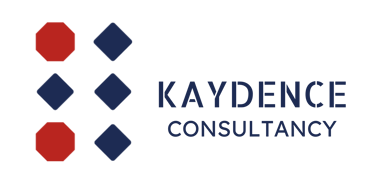Kaydence partners with the CSH to drive innovative solutions in education and healthcare.
Online vs. Traditional Education: Which One is Better for Your Career?
With the rise of digital learning, students and professionals often face the dilemma of choosing between online and traditional education. Each mode of learning has its own advantages and drawbacks, impacting career growth differently. This blog explores the key differences, benefits, and challenges of both online and traditional education, helping you decide which one aligns best with your career goals and learning preferences.
EDUCATION AND LEARNING
2/15/20252 min read


Education is the key to career success, but the way we receive education has drastically evolved. With the rise of digital learning platforms, students and professionals are faced with a critical decision: should they opt for traditional classroom education or embrace the flexibility of online learning? Both approaches have their own advantages and challenges. Let’s compare them to help you determine which one suits your career aspirations best.
1. Flexibility and Convenience
Online Education: Offers unmatched flexibility, allowing students to learn at their own pace, anytime and anywhere. This is ideal for working professionals, parents, and those with other commitments.
Traditional Education: Requires physical attendance at set times, providing a structured learning environment but with less flexibility.
2. Learning Experience and Interaction
Online Education: Utilizes virtual classrooms, video lectures, and interactive forums. However, it may lack face-to-face engagement, which can be a challenge for those who thrive in a social learning environment.
Traditional Education: Encourages direct interaction with professors and peers, fostering networking and hands-on learning experiences.
3. Cost and Affordability
Online Education: Generally more affordable, as it eliminates costs related to commuting, accommodation, and campus facilities.
Traditional Education: Often more expensive due to tuition fees, transportation, and living expenses, but may offer better financial aid and scholarships.
4. Career Opportunities and Employer Perception
Online Education: Gaining more acceptance, especially when accredited by reputable institutions. It is suitable for skill-based learning and professional development.
Traditional Education: Still widely recognized and preferred by employers, especially for fields requiring practical experience like medicine, law, and engineering.
5. Skill Development and Hands-on Training
Online Education: Best for theoretical knowledge, self-discipline, and tech-savvy skills but may lack hands-on training.
Traditional Education: Provides hands-on experience through labs, internships, and practical training, which is essential for many professions.
Which One Should You Choose?
If you need flexibility, affordability, and wish to upskill while working, online education may be your best choice.
If you prefer structured learning, networking, and hands-on experience, traditional education might be better suited for your career growth.
Final Thoughts
There is no one-size-fits-all answer. The best choice depends on your career goals, learning preferences, and lifestyle. Some students even opt for a hybrid approach, combining online courses with traditional classroom experiences to get the best of both worlds. Evaluate your needs and choose wisely to ensure long-term success in your career!
Kaydence Consultancy
Global platform for study abroad solutions, marketing strategy and your efficient research partner
Contact
Get in touch
director@kaydenceconsultancy.com
+9188916082
© 2025 Kaydence Consultancy. All rights reserved.
Designed with care | Powered by Innovation
Navigation
Company
Career
Legal
M G Road, Kochi, Kerala, India
